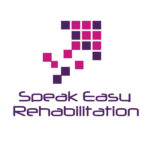It’s thrilling to watch your little ones begin to communicate, expressing themselves with new sounds and words. By practicing speech therapy techniques at home, you can support their language development and encourage their growing ability to talk.
Speech exercises are a fantastic way to equip your children with essential skills for comprehension, articulation, and everyday communication.
Home Speech Techniques
Whether your child is enrolled in speech therapy or not, incorporating these techniques at home helps them continuously build and refine their communication abilities. They are great for refreshers between therapy sessions too!
Here are some speech therapy techniques to try at home when you want to assist your child in improving their speech.
- Complete the Story Game
A great way to support your child’s communication journey is by engaging in simple conversations and storytelling. Turn it into a fun game where you take turns finishing each other’s sentences, guiding your child to complete a thought or add to a story.
To play, start by telling a story and pause, ending your sentence with a connecting word like “and,” “but,” “then,” or “because.” Encourage your child to continue the story in their own words. After they add their part, repeat the full sentence or story to show how your contributions come together, then keep the game going.
By the end, you’ll have created a fun, imaginative story together while helping your child practice forming longer sentences. - Flashcards
Flashcards are an effective tool to help your child link words to objects. By seeing the images on the cards and hearing you name or describe them, children can begin to associate pictures with the corresponding words. With consistent practice, your child will enhance their ability to recognize and accurately name various objects. Flashcards provide a straightforward and engaging way to start expanding a toddler’s vocabulary. - Silly Sounds
Children love to laugh and enjoy themselves, making learning more exciting when it feels like play. When teaching your child a new word or helping them practice challenging ones, get creative by using funny sounds or exaggerated expressions to make the process more engaging.
For example, mimic animal sounds with playful exaggeration or beep like a car horn while describing vehicles. You can also use a mirror to demonstrate how your mouth moves when pronouncing a word, then encourage your child to mimic you while observing their own mouth movements.
Incorporating silly sounds and playful activities not only makes learning enjoyable but also helps your child develop essential language skills. - Read With Your Child
Reading to and with your child is another excellent way to build their vocabulary and help them learn proper pronunciation and enunciation. As they listen to you read, children pick up sounds and words, learning to imitate them. Plus, exploring imaginary adventures together through different books makes the experience enjoyable and engaging.
When reading picture books, you can apply techniques similar to using flashcards by encouraging your child to identify objects in the illustrations. Have them repeat certain words after you to practice clear diction and reinforce their language skills.
Professional Speech Therapy Services
Children often benefit from additional support in developing their speech and language skills. If your child is experiencing a speech delay or if you’re unsure, the experts at Speak Easy Rehabilitation are here to help. We work with you to find the best solutions tailored to your child’s needs, offering speech therapy ideas and techniques to support their progress.
To help your child receive the care they need, contact us online or us at 919.346.3350.
#speechtherapy #speakeasyrehab #therapy

